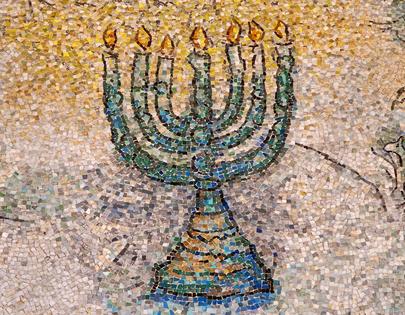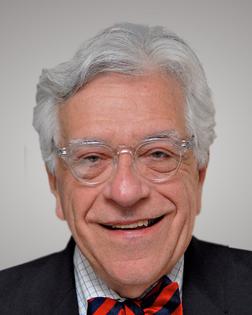The God Squad: The altar of burnt offerings — Part I
Every year on the Jewish High Holidays I send you an edited version of my High Holiday sermon. The differences between this one and the one I preached is that this one lacks some jokes, but on the positive side, this one is too short to put you to sleep.
Today, we continue our four-year spiritual exploration of the klei kodesh, the holy objects that were in the Temple in Jerusalem 2,000 years ago.
Three years ago, I taught you about the mishkan — the ark of the covenant, which as you know, was discovered by Indiana Jones and is now in Steven Spielberg’s beach house.
Two years ago, we studied about the menorah — the seven-branched candelabrum that was taken by the Romans after their conquest of Jerusalem and is now also in Steven Spielberg’s beach house.
And last year, we considered the kior — the washbasin of the priests, made of mirrors from Egyptian bondage and which is not in Steven Spielberg’s beach house because the décor was not right.
This year, the holy thing we shall study is the mizbeah — the altar upon which the burnt offerings of animals were offered.
The mizbeah, the altar, was arguably the most important of all the klei kodesh. All the other holy objects on the Temple mount were either spiritual decorations like the menorah or spiritual relics like the ark of the covenant. The altar was different. The mizbeah was a spiritual tool. The altar was the device that made biblical Judaism work.
To be biblically Jewish one had to offer animal sacrifices and the altar was the place of sacrifice. Three times a year — on Passover, Sukkot, and Shavuot, thousands of Jews made pilgrimage to Jerusalem to affirm their Jewishness by bringing sacrifices of animals and grain and fruits. The altar sustained the hereditary priesthood and the priesthood sustained Judaism.
What did the altar look like? The altar of sacrifice, the mizbeah ha-olah, the main altar is described in Exodus 27:1-8. — “You shall make the altar of acacia wood, five cubits long and five cubits broad. The altar shall be square, and its height shall be three cubits. And you shall make horns for it on its four corners; its horns shall be of one piece with it, and you shall overlay it with bronze.
The altar was the largest and most sacred Weber barbecue grill ever made.
When the Romans destroyed the Temple in the year 70, they also destroyed biblical Judaism. If it were not for the rabbis who invented rabbinic Judaism, our faith would have disappeared.
The key move of rabbinic Judaism was the substitution of animal sacrifices with prayers. The morning sacrifice, the shaharit, was replaced by the morning shaharit prayer. The afternoon grain offering, the minha, was replaced by the afternoon prayer and so on.
The truth is that long before the Roman armies of Titus ended forever the practice of sacrificing animals prophets like Isaiah spoke out against animal sacrifices.
Listen to the power of Isaiah 1:11-17:
“I am sick of your sacrifices. Don’t bring me any more of them. I don’t want your fat rams. I don’t want to see the blood from your offerings. Who wants your sacrifices when you have no sorrow for your sins? The incense you bring me is a stench in my nostrils. Your holy celebrations all are frauds!
In the spirit of the prophets, the rabbis did try to preserve the sacrificial spirit of biblical Judaism. For example, they preserved the biblical commandment of the meiser, which is a commandment to give away a 10th of your gross income. Christians call this tithing oneself.
I buried many Jews who lived a life of sacrifice.
The man who rented a coal bin at his apartment so he could save all his wages and bring his family over from the old country.
The woman who never ate any part of the chicken except the wings so that one chicken could feed her entire family.
The woman who when she made a pot of beans and meat (called cholent) before the Sabbath would cook an extra pot for a poor family.
The woman whose husband was stricken with Alzheimer’s and could not drive safely. To protect his dignity, she drove him to work and picked him up every day for over 20 years. It prevented her from working or traveling or having a normal social life, and it was a daily sacrifice for her. That woman was my mother.
Let us remember the words of Psalm 43:3-4:
Send forth Your light and Your truth; they will lead me; they will bring me to Your holy mountain, to Your dwelling-place, that I may come to the altar of God, God, my delight, my joy; that I may praise You with the stringed instrument, O God, my God (elohim elohai).
Elohim elohai…O God My God. Let the altar of sacrifice burn in our souls forever.
AMEN
(Send ALL QUESTIONS AND COMMENTS to The God Squad via email at godsquadquestion@aol.com. Rabbi Gellman is the author of several books, including “Religion for Dummies,” co-written with Fr. Tom Hartman.)
©2021 The God Squad. Distributed by Tribune Content Agency, LLC.
(c) 2021 THE GOD SQUAD DISTRIBUTED BY TRIBUNE MEDIA SERVICES, INC.










